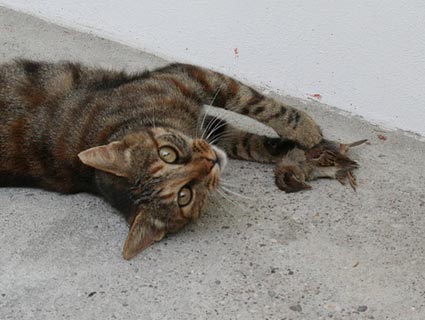
Flickr/<a href="http://www.flickr.com/photos/sidm/5263177868/sizes/z/in/photostream/" target="_blank">SidPix</a>
It wasn’t just politics that changed when the Iron Curtain fell in 1989—the collapse of communism in Europe altered the landscape, too. In many formerly communist areas, cities exploded as peasants moved out from the countryside, and farming declined. Now, researchers in Germany suspect that the end of the Cold War even might have had evolutionary consequences.
A study, published in the journal Conservation Biology, focused on 57 songbird species in Northwestern Germany, Eastern Germany and the Czech Republic. Researchers analyzed how their population sizes changed during the post-communist years, trying to figure out how birds adapted to their new environs, and what accounted for their success. Their finding:
Birds with bigger brains tended to show a slight uptick in populations sizes in East Germany, and even bigger gains in the Czech Republic. The “increases of species with large brains suggest that species with good cognitive abilities might have been better able to adapt to rapid socioeconomic change and make use of novel opportunities after the end of communism,” the authors write.
The study’s authors also speculate that one major reason for this was that birds with bigger brains adapted better to living close to humans in the growing urban centers. But appealing though it may be to imagine flocks of savvy, street-smart birds crowding the streets of Eastern European cities, the researchers caution that the study was preliminary, and it’d be pretty hard to prove any kind of causative link with the information they have. Still, it’s worth thinking about as the world’s cities continue to grow and spread.
















